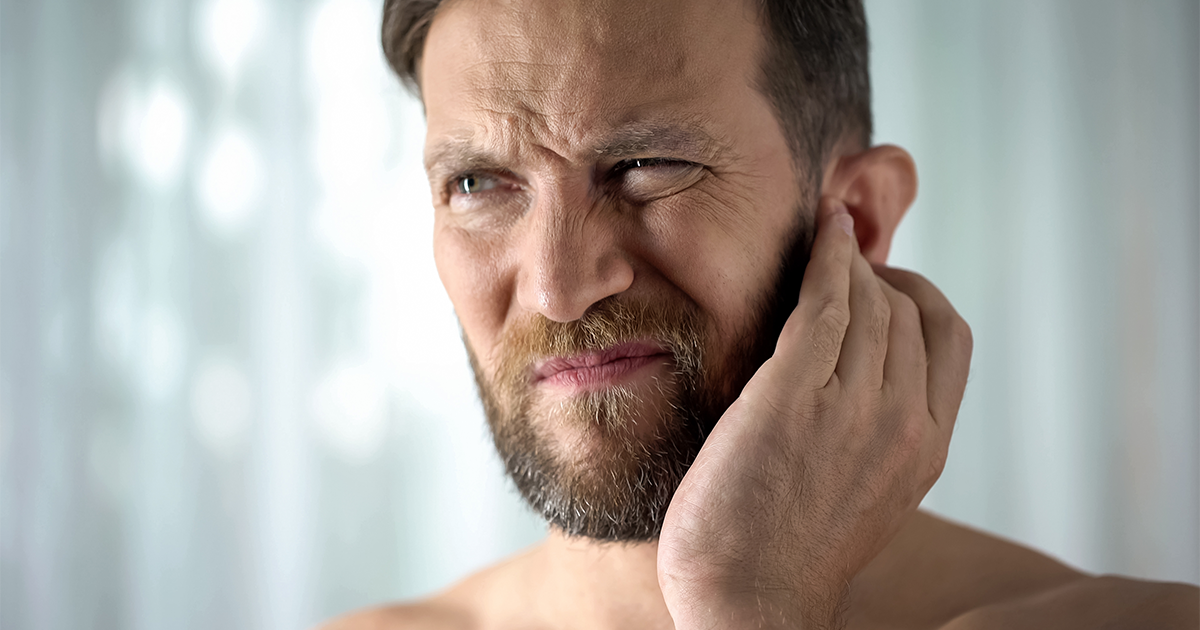
Having an itch that you can’t scratch – especially in an unreachable place like inside your ear – is a frustrating experience. Ears are relatively small as far as body parts go, but they’re full of sensitive nerves that can greatly impact how you feel.
Itchy ears can indicate a variety of things, but what you do (or don’t do) might worsen the problem. So, before you put in that Q-tip or whatever else you’re tempted to stick inside your ear (you should never stick anything inside your ear), check out possible reasons why your ear is itchy and what it means for your health!
Itchy ears are often a sign of an ear infection. Viruses and bacteria can cause ear infections, usually when you have a respiratory condition like a cold, the flu, or allergies. Itchy ears that are also painful, warm, or red are strong indicators of an ear infection – especially if you have other symptoms of an upper respiratory infection or allergies (such as a sore throat or congestion) at the same time.
Of course, not all ear infections are the same. Numerous types of germs or fungi can infect your ears and cause them to itch, even when you’re not sick.
Otomycosis is a fungal infection that affects your outer ear and can cause itchiness, ear pain, discharge from the ear, flaky skin around the ear canal, and other symptoms.
Otomycosis happens when fungi that thrive in warm, humid temperatures grow and spread inside your ear. Fungal ear infections are most common during hotter months.
Itchiness, ear pain, redness, and swelling are common symptoms of another outer ear infection known as “swimmer’s ear.” Swimmer’s ear occurs when water remains in your ear for too long after you swim or if you frequently have water trapped in your ear or showering or bathing).
The potential damage caused by excess moisture in your ear is two-fold. When water mixes with your earwax, the earwax loses its natural ability to fight off infections. Because your ear canal is a dark, warm place, it also becomes a perfect breeding ground for bacteria.
Earwax is your body’s natural way of cleaning dirt and dead skin cells out of your ears, but having too much earwax can cause trouble. Excessive earwax may make your ears itch, trap bacteria inside your ears (possibly leading to infection), or affect your hearing.
Earwax build-up typically happens after inserting a Q-tip, finger, bobby pin, toothpick, or some other object into your ear. Going too far can irritate your ear canal and push the earwax back further, causing a blockage. Nothing should ever be placed inside your ear canal without the assistance of a healthcare professional. Performing this yourself at home increases the risk of a perforated ear drum. If needed, a vybe provider can use a special tool to remove earwax build-up safely.
Your ear canal is lined with skin, just like the rest of your body. If you have a skin disorder in or near your ears, you may experience itchiness. Some people also notice a rash or red, scaly patches in the same area.
Skin conditions that may cause itchy ears include psoriasis, eczema, and dermatitis (skin inflammation). Some people develop ear canal dermatitis after having allergic reactions to products used in or near their ears, such as shampoo or earrings.
Allergic rhinitis, or hay fever, can cause itchiness in your ears, eyes, and throat. These allergies react to particles found in the air, such as pollen, dust mites, or animal fur. Other common allergy symptoms include watery eyes, a runny nose, sneezing, and congestion.
Feeling anxious or stressed can cause itching in any part of your body, including your ears. Some people begin scratching themselves as a nervous habit. Over time, frequent scratching can irritate or damage the ears, requiring medical attention.
From mild itching to severe earaches or pain, vybe urgent care has you covered. The first step is diagnosing what’s causing your ear discomfort so we can provide safe and effective treatment.
Ear infections that are left untreated put your hearing and health at risk. During your visit, your provider will look deep inside your ear to check if you have an ear infection. Some ear infections clear up on their own without antibiotics. However, severe ear infections, or those lasting longer than 2-3 days, should be checked right away to determine if antibiotics are needed.
In addition to ear infections, vybe can diagnose and treat respiratory illnesses such as the common cold, sinus infections, sore throat, bronchitis, and COVID-19. We can also help relieve the symptoms and congestion caused by seasonal allergies.
All vybe centers have licensed medical professionals with a wide range of healthcare knowledge. So, what are you waiting for? Say goodbye to ear discomfort and hello to vybe – walk-in or schedule an appointment at your local vybe urgent care today.
FIND YOUR VYBE